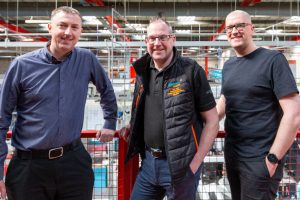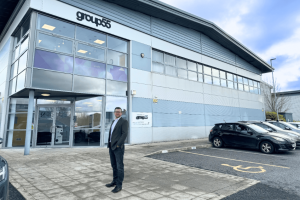Northern Powerhouse Partnership sets out ‘routemap for productivity’

Powering Leeds with hydrogen, investing over £1bn in portable nuclear reactors and leading the way on the Internet of Things – are just three ways the North can become £100bn more productive, according to a new report which is launched today in Burnley to an audience of Northern businesses, apprentices and civic leaders.
The Northern Powerhouse Partnership says its Powerhouse 2050: The North’s Routemap for Productivity sets out fully costed, evidence-based proposals for four areas which could, with government funding and business support, rival the best countries and regions in the world.
It has had input from more than 500 business, universities, interest groups and many others to consult on the steps needed to be taken to make the North’s prime capabilities – Advanced Manufacturing & Materials, Energy, Digital and Health Innovation – world-class.
These include:
· £2bn to replace the entire gas network of Leeds with hydrogen, produced in the Tees Valley, which it says would significantly contribute to the UK’s 2050 and Paris Agreement commitments on reducing carbon emissions.
· £60m for the North to be the first region in the UK to commit fully to Industrial Digitisation – how UK manufacturing can increase its use of digital technology, such as the Internet of Things, and automation to become more productive and competitive.
· £100m to reinforce the North as the UK leader in health data by investing in Connected Health Cities harnessing patient data to diagnose, treat and deliver services more effectively and efficiently across the region, as well as further improving clinical trials.
· £1bn to create a new Northern industry in small nuclear reactors, capable of being manufactured at a plant and brought to a site to be built and allowing for better nuclear material security.
The workshops across the North were led by senior leaders from some of the North’s biggest employers, such as Professor Juergen Maier of Siemens, who led the Advanced Manufacturing & Materials research.
He said: “This Northern Powerhouse Partnership report sets out bold and original initiatives that could, with appropriate levels of funding and support, have a transformational effect on the North of England and provide a vital boost to productivity.
“The digital reindustrialisation of the North of England is an essential part of our economic future to ensure that UK growth benefits the country as a whole.
“As digitalisation becomes central to our society and the future of manufacturing, the UK needs to invest in automation, innovation and science to give our UK industries the boost they need to be globally competitive.”
Andy Koss, chief executive of Drax Power, who led the Energy group, said: “There are huge opportunities for us as a region – not just in terms of potential jobs and the economic benefits, but also the positive environmental impacts associated with decarbonisation.
“In the North we lead the way in existing energy technologies such as bioenergy, offshore wind and nuclear power – all vital in delivering the Government’s Industrial Strategy.”
The Digital theme was led by Stephen Church, partner at EY. He added: “Enhanced connectivity, such as fibre to the premises broadband or 5G roll-out, and better support for start-ups would be major advances in how we embrace the digital age, but equally important is creating incubators and co-working spaces to suit the needs of a modern workforce.”
The proposals in the report have been submitted to the government for consideration in the Autumn Budget on November 22.
One of the key common areas that contributors to the workshops agreed on was access to a skilled workforce, and the Northern Powerhouse Partnership said its next major report will focus on what steps are needed to improve educational outcomes and address the skills gap, using an evidence-based approach and working with employers, schools and a rage of educational groups.








